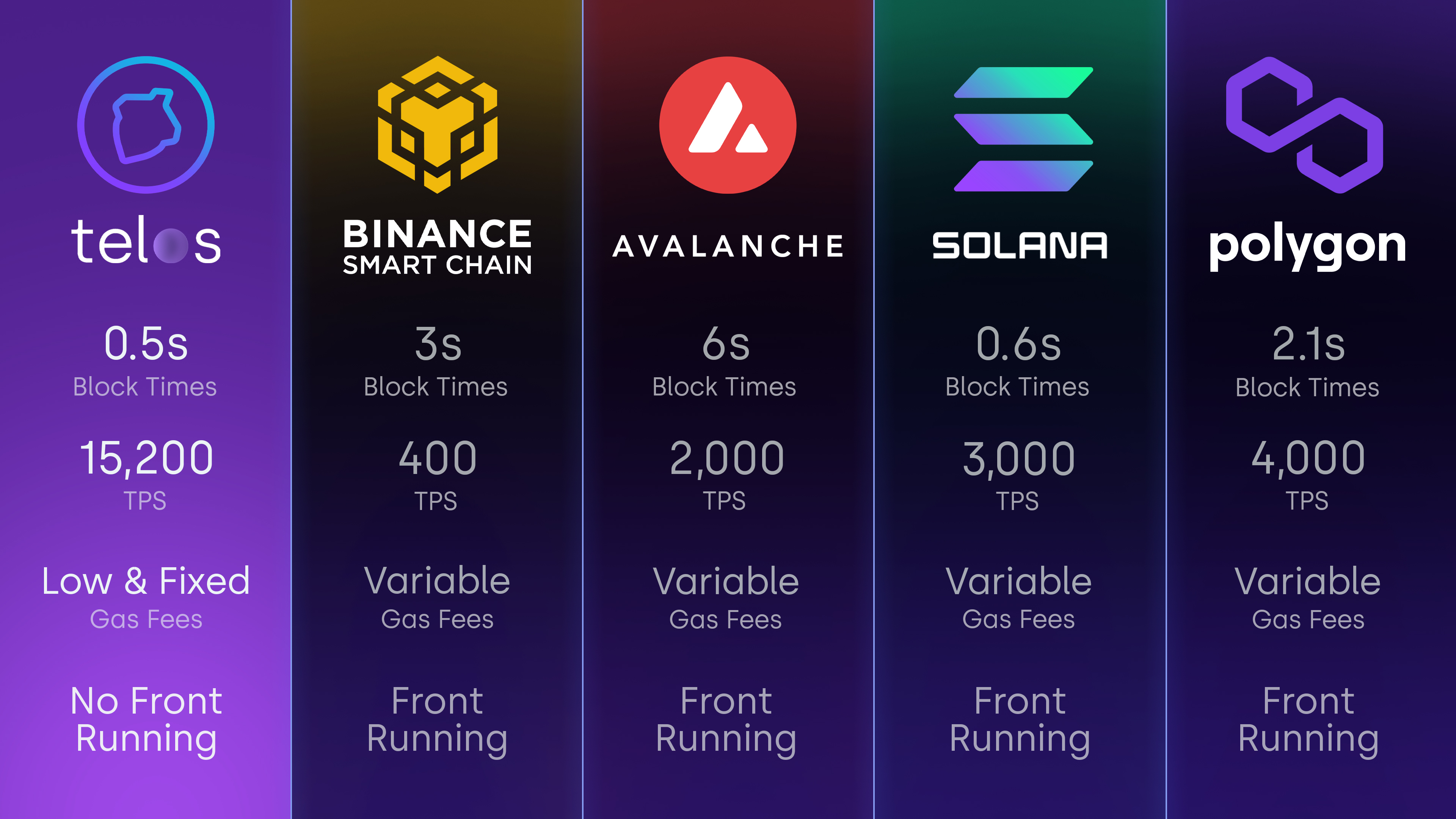Introduction
What is Telos?
Telos is a next-generation Delegated Proof of Stake (DPOS) Layer-1 blockchain network. It features unsurpassed compatibility for developers and provides an extensive suite of tools and onboarding support to develop and deploy smart contracts on the world's fastest, most scalable, and affordable Telos EVM. The network is backed by robust governance features and a vibrant community of passionate contributors and users excited about the future of Web3.

Establishment
The Telos Network is a real-world-ready blockchain. Through years of challenges, innovation, and web3 firsts, Telos has grown into a network capable of supporting the extreme demands of the decentralized world of tomorrow. Launched in 2018 without an ICO and through a fair token distribution, the lead development team initially utilized the Antelope.io source code and debuted a specialized version with additional layers of governance, tooling, and node configuration requirements. Through the years, the development team has continued to innovate based on the needs of builders and, in late 2021, launched the first bespoke/ground-up Ethereum Virtual Machine (tEVM), which runs using a smart contract on the Telos Zero chain's quick finality and node infrastructure. The launch of the tEVM has given builders and users two networks, Telos Zero supporting C++-based applications and the tEVM allowing for complete compatibility from any traditional EVM/solidity-based applications. Telos continues to push beyond the boundaries of what web3.0 networks can achieve, and builders can look forward to additional performance and language capabilities as the Telos Network continues on its sharp growth trajectory.
Distinctive Attributes Telos provides
Distinctive Attributes Telos provides


Uptime
Operational integrity of the Telos network has maintained a 100% uptime since December 2018 without any breaks, forks, or outages.


No Front Running
Telos is architected not to have a mempool and allows for transactions to be processed on a 'First in First Out' basis, eliminating the ability for transactions to be front run.


Transaction Finality
.5 second block times. It takes half a second to complete a transaction.


Transaction Throughput
.5 second block times. It takes half a second to complete a transaction.


Security
DPOS consensus mechanism provides strong security protection against a 51% attack. Telos requires 2/3s + 1 of the validators to sign blocks.


Fixed Gas Rate
Telos Gas Fees average .01 per transaction. In addition, gas fees do not fluctuate with network volumes. As a result, costs are more predictable and affordable for users and infrastructure.


Sustainable
Low carbon footprint. A typical transaction currently only consumes 0.000001 kWh to execute.


Smart Contract Support
Developers can build smart contracts on Telos in multiple languages, including Solidity, C++, Go, and Rust. This makes Telos the most compatible and versatile blockchain to build on (Additional language support to be added soon).
Documentation Purpose: The Telos docs provide a list of comprehensive guides for building on Telos dedicated to web2 and web3 developers. If you have any suggestions, please visit our EVM or Zero development channels. To contribute, please visit our documentation repository and do a Pull Request in an area where you can apply specific information/knowledge.